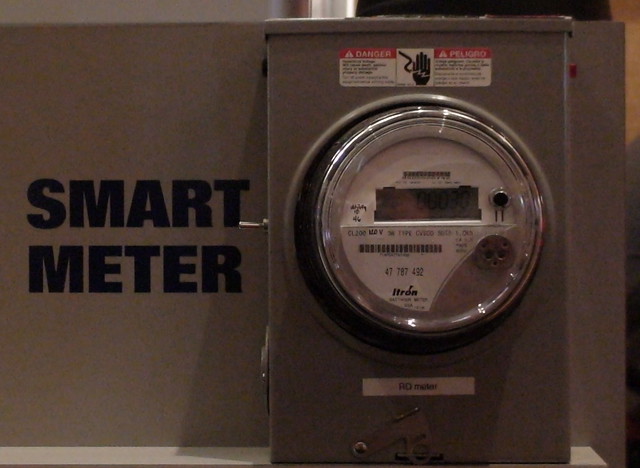At the recent Logica Utility Analyst day, I talked to Logica’s Global Utilities Director, Nigel Spooner about Smart Meters, Smart Grids and the DCC – here’s a transcription of our conversation:
Tom Raftery: Hi everyone, welcome to GreenMonk TV, I’m in the Logica building in London with Nigel Spooner. Nigel is Global Utility Director for Logica. Nigel we’ve had a bit of a discussion here during the analyst event that I have just been attending, around smart meters and smart grids. Now we’re in the middle of one of the world’s worst economic crises in a long time, why would utilities want to be spending money on rolling out smart meters?
Nigel Spooner: Yeah it’s a good question isn’t it, it is difficult when money is tight, but there are benefits to smart metering, both in terms of the consumer being able to manage their energy consumption more closely, and also in terms of the distribution companies being able to run their networks more efficiently, but also and importantly being been able to cater for consumers doing their own generation for instance with photovoltaics and also for things like incorporating electric vehicles into the network.
Tom Raftery: So this is kind of life smart grid stuff and can you give us a quick idea, I mean you talked just a little bit about it sidewise, give me kind of an overall picture of what a smart grid is?
Nigel Spooner: A smart grid is difficult to define very succinctly, but it is a distribution grid where there is much more control over the way that power flows both on to and off the grid. At the moment grids are very much one way. The power goes in from the power station, it goes through the network and into the consumer.
Increasingly we’re having to cope for the fact that the consumers themselves are generating power, they are also using things like electric vehicles which have to be charged up at particular times, they need to be controlled if the networks are not to be overloaded, and therefore the distribution grids have to be much more responsive to those loads and those demands going on them. Smart metering gives the distribution companies the opportunity to know what’s going on on that grid to a much closer degree, and in real time than they having been doing so far.
Tom Raftery: And advantages to consumers…
Nigel Spooner: To consumers the advantage is that they can get first of all more flexible tariffs, so we may be able to get tariffs that are much more aligned with the way in which we actually consume energy, rather than being just a blanket tariff that’s the same for everyone. There will be much more information on the energy that one is using, so that for instance one can see when one is going for a rather large load and to turn things off if you need to, but also there is the ability increasingly to respond to variable pricing, so that if we know for instance electricity is going to be expensive in three days time because of demands on the system, then we can react to that and make sure that our large items like air-conditioning units that’s on, do not get turned on when the price is very high. So we should be able to save both energy and money through the information that smart metering gives.
Tom Raftery: And, I’ve heard a bit about this DCC thing that’s been rolled out here in the UK, can you tell me a little bit about that?
Nigel Spooner: Well DCC is simply the organization that is going to be setup or is been setup by the British government to basically take charge of all the data that is coming off smart meters as we roll them out. This will be collected centrally and then distributed to the market participants and the view is that, that will be the most efficient way to manage this huge increase in information that smart meters are providing. By doing that it should make it easier for participants to come into the market and it should make it easier for consumers to get the best deal on their energy.
Tom Raftery: Where is Logica in all this?
Nigel Spooner: Well I’m delighted to say that all the things we’ve been talking about require relatively sophisticated information technology services to enable them to happen. Logica has for many years been in the business of providing the systems and the services that are required to make those infrastructures operate effectively and we will of course continue to do so.
Tom Raftery: Okay, great. Nigel that’s been fantastic, thanks for talking to us today.
Nigel Spooner: Thank You Tom.
Full disclosure – Logica paid my travel and accommodation to attend this event.

